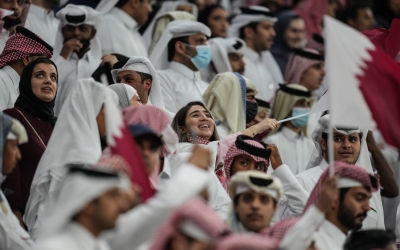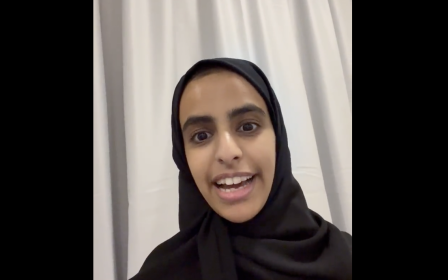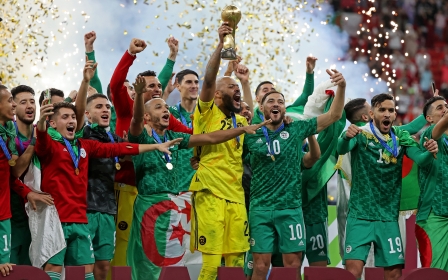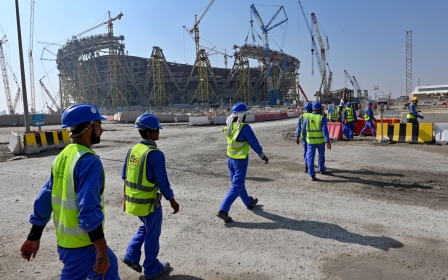Qatar World Cup 2022: Eric Cantona says 'it's only about money'
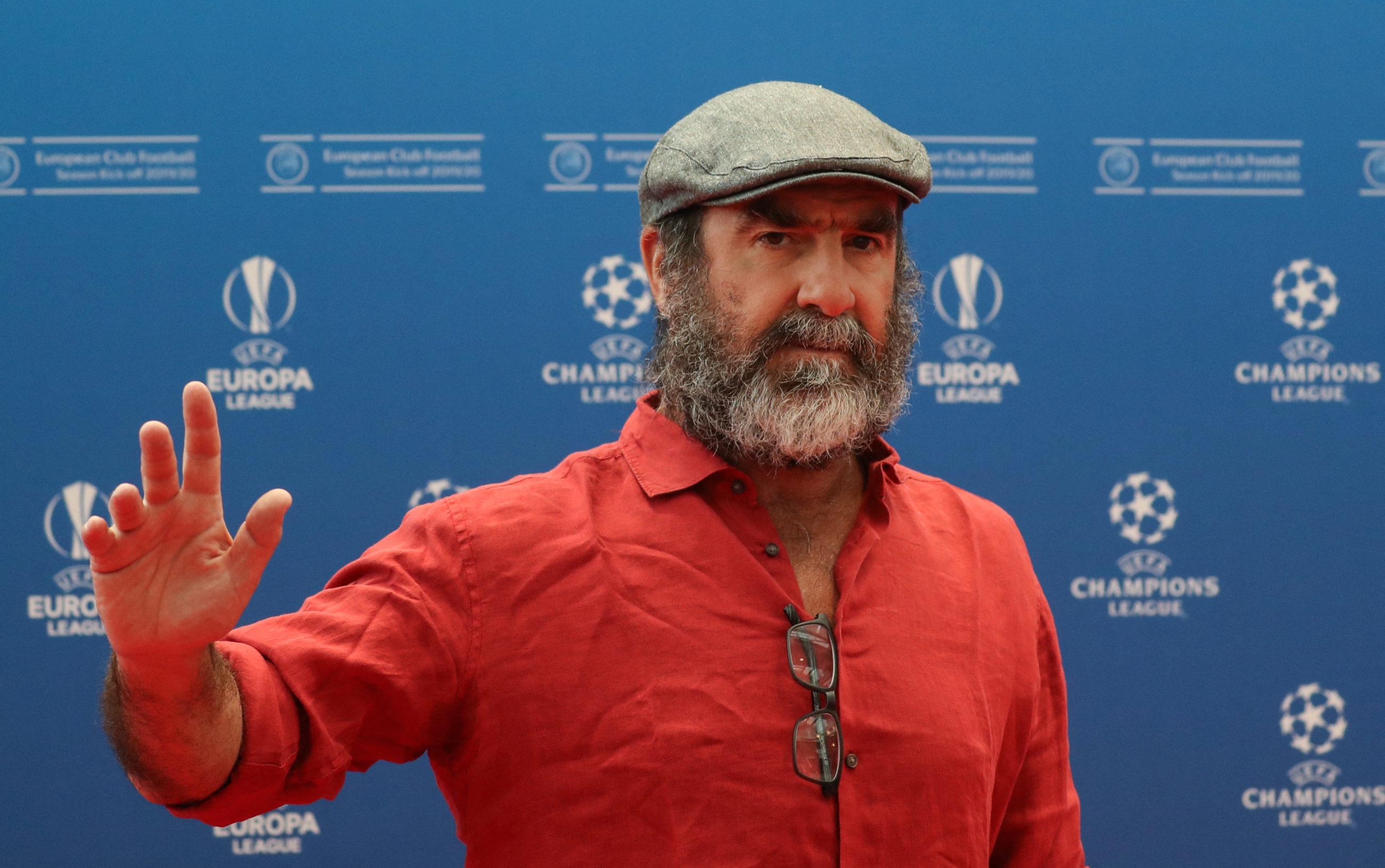
French football legend Eric Cantona has launched a scathing attack on Qatar hosting the 2022 World Cup, criticising the treatment of workers and describing the tournament as “only about money”.
“I don't really care about the next World Cup, which is not a real World Cup for me,” the former Manchester United star told the Daily Mail on Wednesday.
New MEE newsletter: Jerusalem Dispatch
Sign up to get the latest insights and analysis on Israel-Palestine, alongside Turkey Unpacked and other MEE newsletters
“In the last decades, you had a lot of events like the Olympic Games or World Cups in countries that are emerging - like in Russia or China.
“But Qatar - it's not the country of football. I'm not against the idea of hosting a World Cup in a country where there is a possibility to develop and promote football, like in South Africa or the United States in the 90s."
Cantona said that the popularity of women’s football and the presence of Latin American communities had led to the development of football in the US.
“But in Qatar, the truth is that there is no such potential. There is nothing. It's only about money I think.
“It's only about money and the way they treated the people who built the stadiums, it's horrible. And thousands of people died. And yet we will celebrate this World Cup.”
The 55-year-old was likely referring to a report in the Guardian last year, which stated that 6,500 South Asian migrant workers had died in Qatar since it had won the right to host the World Cup.
The report has been subject to criticism, with the Guardian accused of "clickbait" and "wrongly implying" that the deaths of migrants were connected to the World Cup. Less than 1 percent of the deaths have been confirmed to be connected with stadium construction.
'I will not watch it'
Cantona is regarded as one of the greatest English Premier League strikers, winning seven league titles in his final eight seasons as a professional footballer. He also played on 45 occasions for the French national team, scoring 20 goals in the process.
“Personally, I will not watch [the World Cup in Qatar]. I understand football is a business. But I thought it was the only place where everybody could have a chance,” he said.
He added that most footballers came from poor backgrounds, and football was a “meritocracy” that gave them a chance to “save themselves and save their family”.
“If meritocracy and potential is the essence of football, it's even more surprising that we can organise a World Cup in Qatar, and people actually voted for that.”
Cantona's comments received a mixed reaction on social media. While some agreed with his sentiments, several users accused him of double standards for failing to call out previous hosts.
“Like the Brazilian World Cup wasn't also built off the back to cheap labour?” one user tweeted.
“As though we didn't watch a World Cup in Russia, a country run by one of the most corrupt governments in the world ? Such double standards.”
"So, when the World Cup was held in the United States and Russia, did he condemn or bring up their human rights violations, or is it always selective?" another user asked.
Last month, Middle East Eye travelled to Doha to report on Qatar’s preparations for the tournament.
MEE found that large swaths of the capital remained under construction, with migrant labourers working hard to meet fast-approaching deadlines.
Foreign workers painted a mixed picture of life in Qatar. Some said that labour reforms enacted by the government, such as reducing the number of working hours during summer months, had benefited them.
However, several workers said they were still facing exploitation from employers, and were afraid to utilise the complaints systems through fear of impacting their visa status.
This article is available in French on Middle East Eye French edition.
Middle East Eye delivers independent and unrivalled coverage and analysis of the Middle East, North Africa and beyond. To learn more about republishing this content and the associated fees, please fill out this form. More about MEE can be found here.


